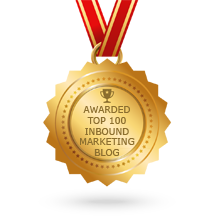
The rapid growth in online usage has presented small businesses with a dizzying number of new platforms and avenues to reach their customers. It seems that anyone with an internet connection can potentially reach millions of people. But where should you channel your content marketing efforts?
New figures released by Smart Insights has revealed that the number of worldwide internet users has continued its upward spiral, growing another 10% in 2015 to officially reach 3.4 billion.
In the Asia-Pacific region alone, the number of mobile social users leapt by an astonishing 21% as more people connect and access content via their smartphones and tablets.
Without a clear direction it’s easy to get lost in the online ocean, wasting precious time and resources publishing content that has no audience.
If you’re thinking about ramping up your online content marketing efforts, here’s how you can choose the right publishing platform:
Know To Whom You Are Marketing
Setting up your publishing platforms before you’ve identified your customers and audience is putting the figurative cart before the horse. Whether you’re posting, pinning or retweeting, it pays to do the groundwork in understanding your market before you ever hit ‘publish’. This is where Buyer Personas are especially powerful.
Buyer Personas reveal the deeper motivations of your buyers, unlocking ways you can use various publishing platforms that truly resonate with them. By understanding what your customers are trying to achieve, you can align your content to help them reach their goals and overcome their challenges.
It’s an essential part of marketing to prospective customers, according to HubSpot’s Lindsay Kolowich.
“Buyer personas are a crucial component of successful inbound marketing, particularly for the sales and marketing departments,” Kolowich says. “After all, the marketing team needs to know to whom they are marketing, and the sales team needs to know to whom they are selling.”
Be Choosey
Today’s marketers and small businesses are presented with a veritable smorgasbord of publishing platforms and social media networks. From the Big Three (Facebook, Twitter, LinkedIn) to popular newcomers (Instagram, Pinterest, Snapchat) all boasting a collective 2.3 billion users, it’s tempting to sample everything at the social media buffet.
But dabbling with all of them means you run the risk of not using any platform particularly well, which is the fastest way to go nowhere.
“Even on a personal level, I've done this before — signed up for the new, swanky social media site and then realised that I either don't have time to keep it up, or I'm simply not interested,” admits Natasha Smith, Senior Editor at DMN. “As a marketer you only have so much time and resources (e.g. money and human capital), so be judicious.”
If you’re thinking about joining the social media party, start small and be realistic about what you’re able to sustain.
Develop A Strategy
One of the great selling points of social media has been its accessibility, affordability and ease of use. Small businesses can — quite literally — set up a social media account in minutes, and start publishing moments later. Yet we’ve all seen the Facebook pages and Twitter accounts set up by well-meaning small businesses sitting stagnant with few posts and fewer followers.
Publishing content without a solid strategy to support it is like trying to build a house without first laying a foundation. A plan for the type of content you want to publish and how frequently you want to publish it needs to be finalised long before you ever draft a tweet.
“Having a real purpose enables social media marketing to have a role within the wider marketing mix - everyone knows where they're going within the business and those tools and channels develop a tangible purpose,” says Danyl Bosomworth from Smart Insights. “It's not a promotional channel, it's a relationship channel, one that (done well, over time) earns you permission to sell. Unfortunately to many folks look at Facebook and then think it's another mouthpiece for their brand.”
“Having a purpose in both social media at large and within specific social channels like Facebook is important. What is your mission and how are the characteristics of each specific channel, and the types of people using them, best placed to support that?”
Monitor and Measure Constantly
The beauty of online publishing platforms is that you typically have access to real-time data, meaning you can see which platforms are giving you the best returns and which ones are wasting your time - and allowing you to adjust accordingly. Over time you can use metrics to publish highly targeted and strategic content on platforms you know that work.
“You are spending time, energy and budget on making social media a success. If you really want it to be successful, it’s critical that you understand what’s actually working and what isn’t,” advises Nichole Kelly from Social Media Examiner.
“We all want to prioritise our efforts to the things that produce the highest result, but if you aren’t measuring what’s delivering, you have no idea what you should be doing more of. Further, you won’t be able to test how little tweaks impact important things like conversion rates.”


